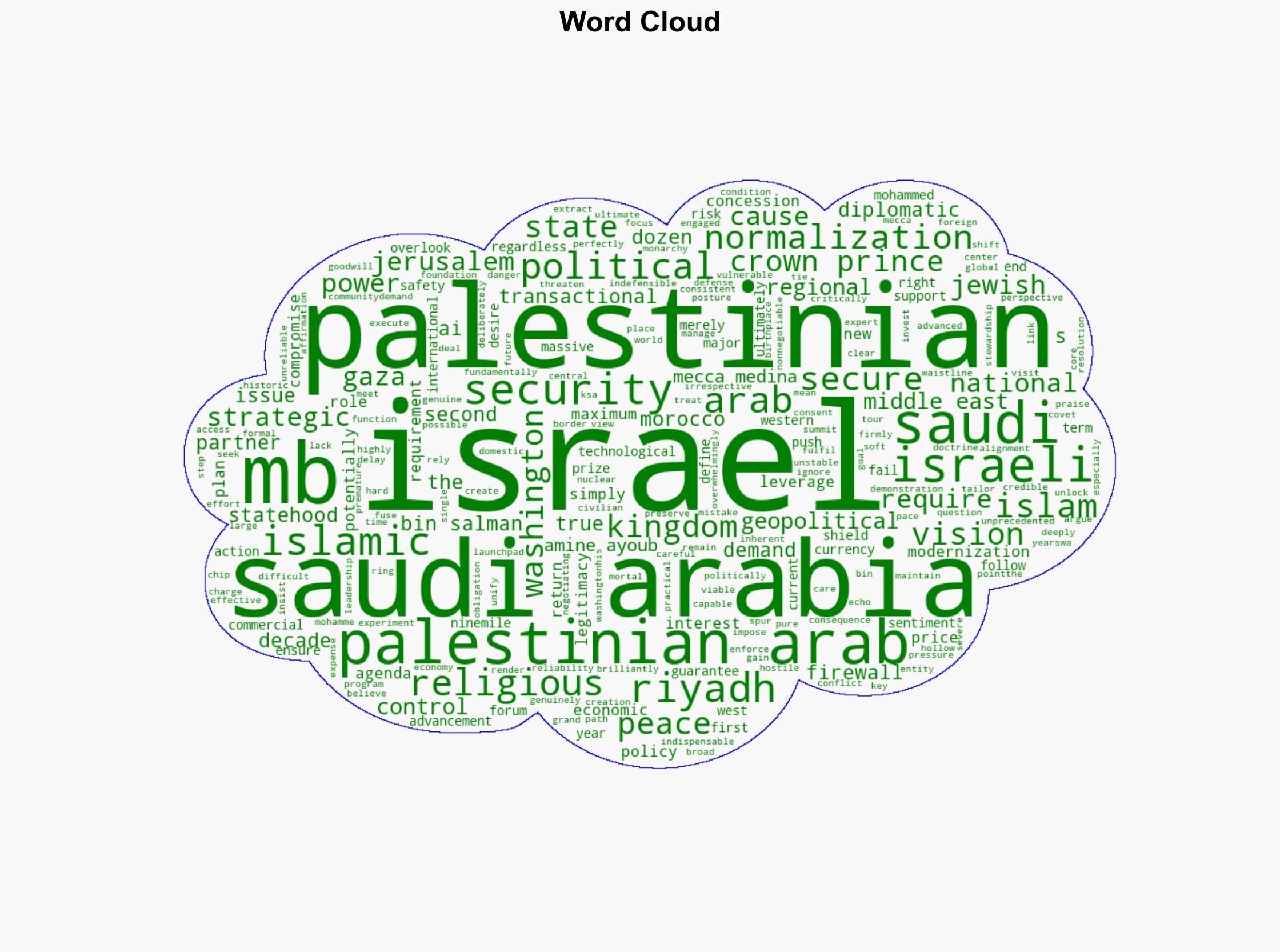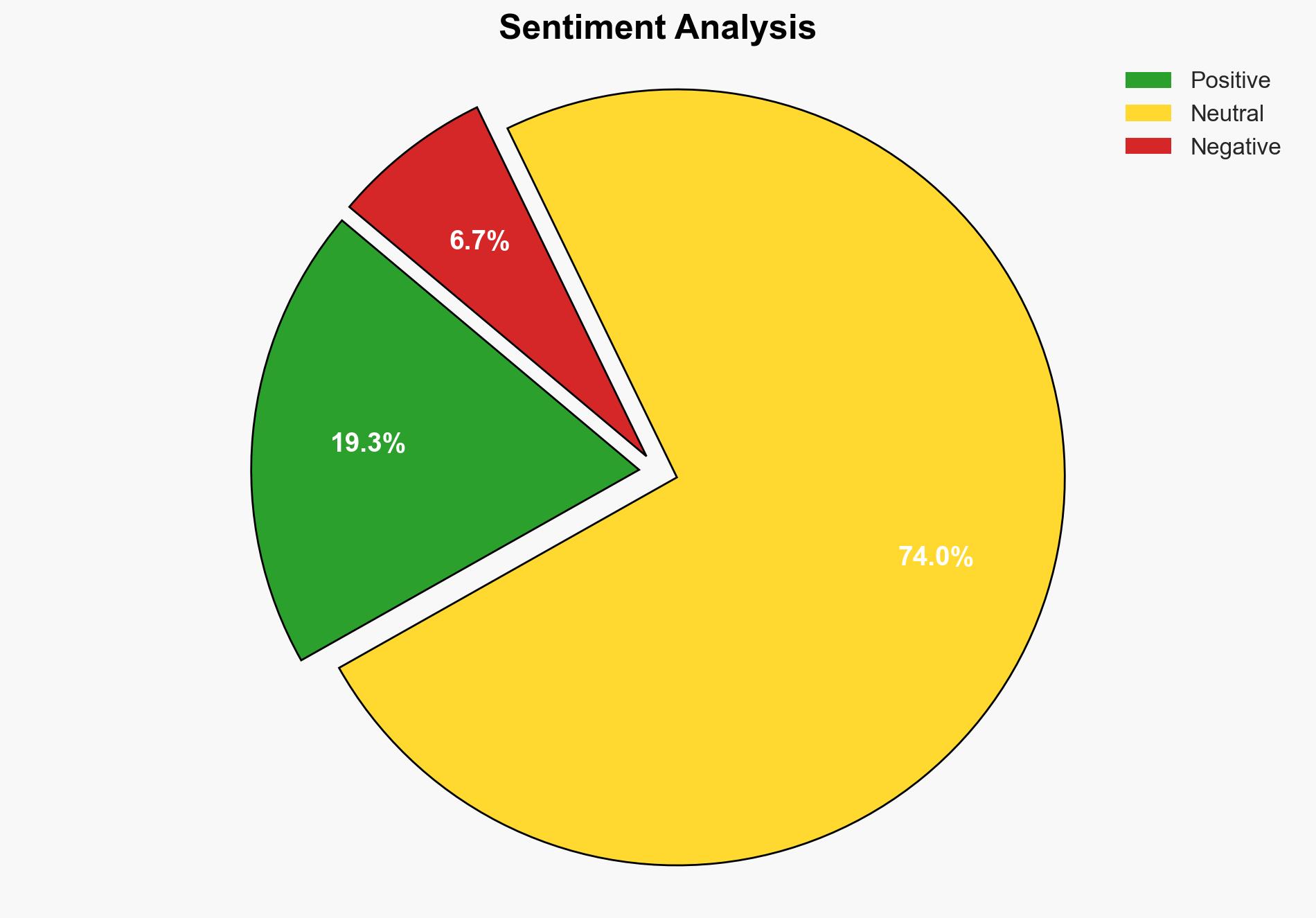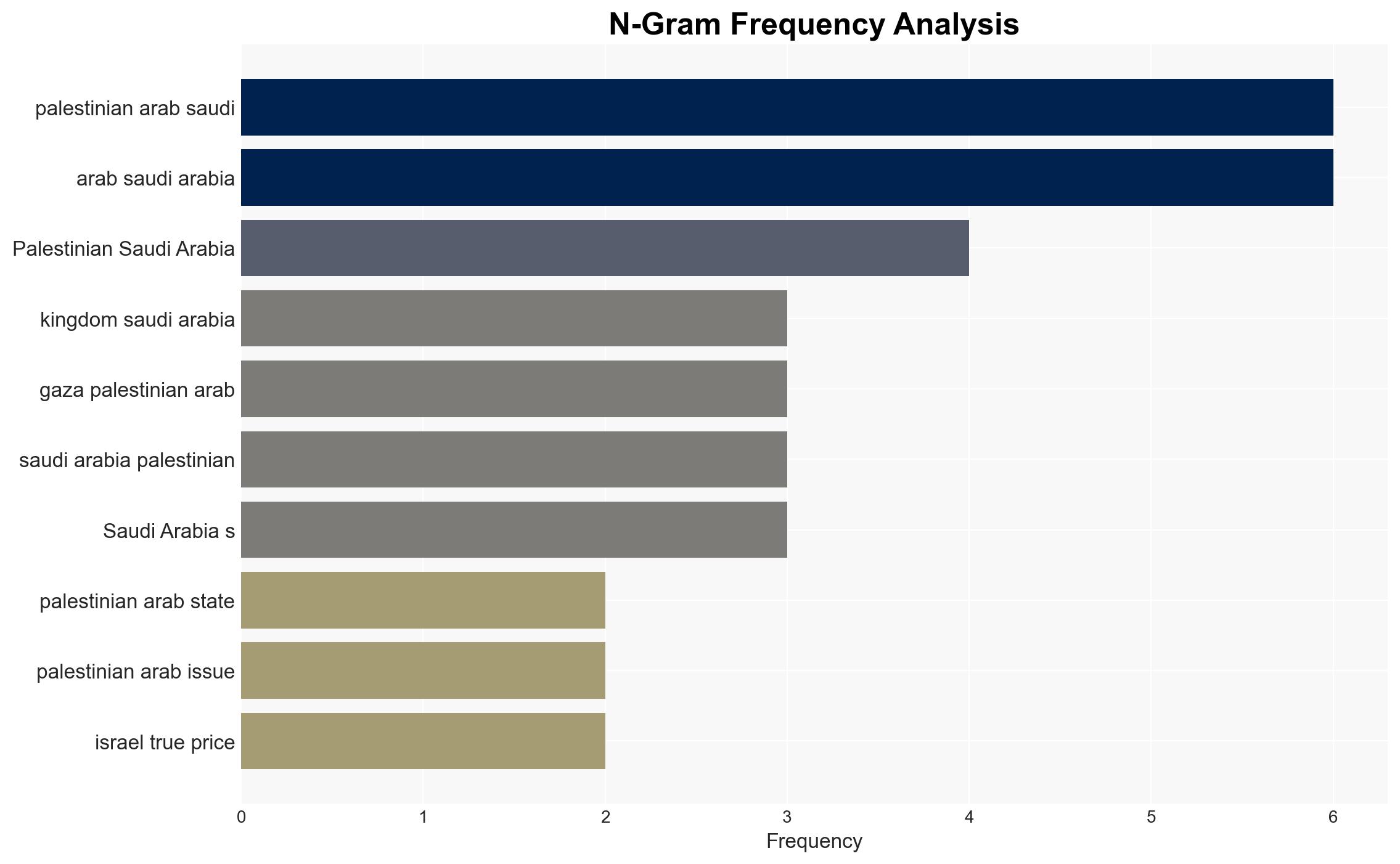Why Israel must view MBS’s demands with extreme caution – Israelnationalnews.com
Published on: 2025-11-20
AI-powered OSINT brief from verified open sources. Automated NLP signal extraction with human verification. See our Methodology and Why WorldWideWatchers.
Intelligence Report:
1. BLUF (Bottom Line Up Front)
Israel must approach Crown Prince Mohammed bin Salman’s (MBS) demands with extreme caution due to potential security compromises inherent in his conditions for normalization. The most supported hypothesis is that MBS’s demands are primarily transactional, aimed at maximizing Saudi Arabia’s geopolitical leverage while potentially destabilizing Israel’s security posture. Recommended action is for Israel to engage in cautious diplomacy, ensuring any concessions do not undermine its core security interests. Confidence Level: Moderate.
2. Competing Hypotheses
Hypothesis 1: MBS is genuinely interested in fostering a viable Palestinian state as part of a broader peace initiative, using normalization with Israel as a strategic tool to achieve this goal.
Hypothesis 2: MBS’s demands are primarily transactional, aimed at extracting maximum concessions from Israel to bolster Saudi Arabia’s national interests, with less genuine concern for the Palestinian statehood outcome.
Hypothesis 2 is more likely given the transactional nature of MBS’s foreign policy and the strategic benefits Saudi Arabia seeks from normalization, such as technological and economic gains, which align with its Vision 2030 objectives.
3. Key Assumptions and Red Flags
Assumptions include the belief that MBS’s demands are negotiable and that Saudi Arabia’s commitment to Palestinian statehood is genuine. Red flags include the potential for MBS to use the Palestinian issue as leverage without a genuine commitment to a sustainable solution, and the risk of Israel making concessions that could compromise its security. Deception indicators may include inconsistent messaging from Saudi officials or sudden shifts in negotiation terms.
4. Implications and Strategic Risks
The primary risk is the potential destabilization of Israel’s security environment if concessions lead to a less defensible border. Politically, failure to adequately address Palestinian statehood could exacerbate regional tensions. Economically, Israel could face increased pressure from Western powers to comply with Saudi demands. Cyber and informational threats may arise if negotiations sour, leading to increased propaganda or cyber-attacks targeting Israeli infrastructure.
5. Recommendations and Outlook
- Israel should engage in multilateral discussions with key allies to ensure any agreement with Saudi Arabia does not compromise its security.
- Conduct a thorough risk assessment of proposed concessions, particularly regarding technological and military transfers.
- Best scenario: A balanced agreement that enhances regional stability and economic cooperation without compromising Israeli security.
- Worst scenario: Concessions lead to a weakened Israeli defense posture and increased regional instability.
- Most-likely scenario: Protracted negotiations with incremental progress, requiring ongoing diplomatic engagement and strategic patience.
6. Key Individuals and Entities
Mohammed bin Salman (MBS), Crown Prince of Saudi Arabia; Israeli government officials involved in negotiation processes.
7. Thematic Tags
Structured Analytic Techniques Applied
- Cognitive Bias Stress Test: Expose and correct potential biases in assessments through red-teaming and structured challenge.
- Bayesian Scenario Modeling: Use probabilistic forecasting for conflict trajectories or escalation likelihood.
- Network Influence Mapping: Map relationships between state and non-state actors for impact estimation.
Explore more:
National Security Threats Briefs ·
Daily Summary ·
Support us





